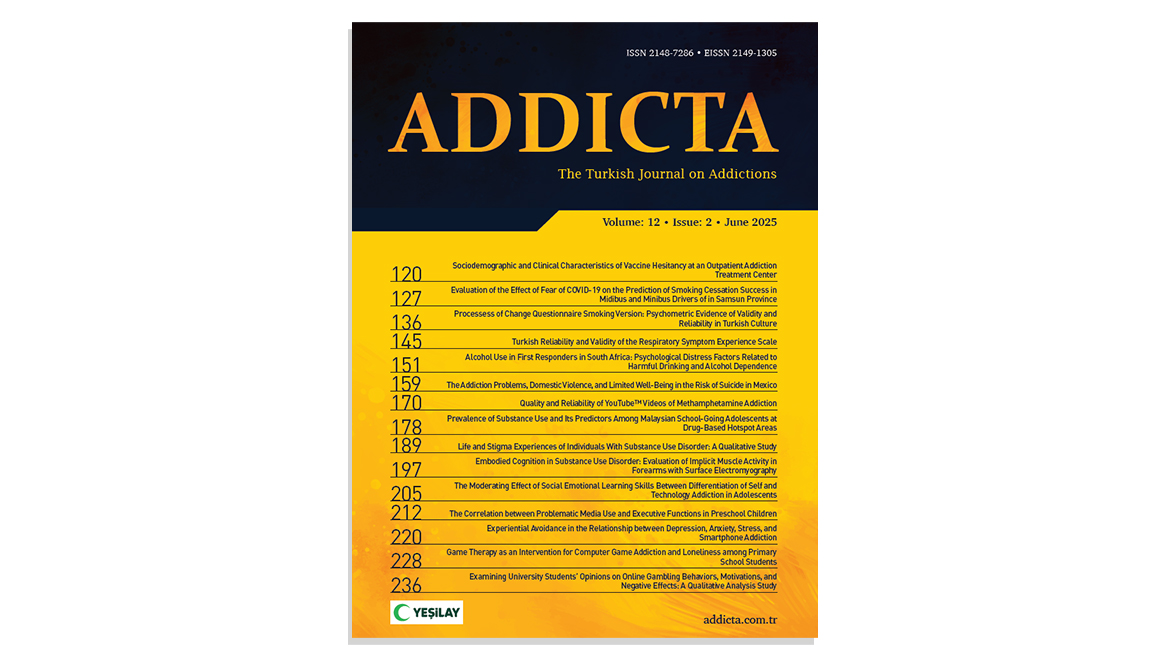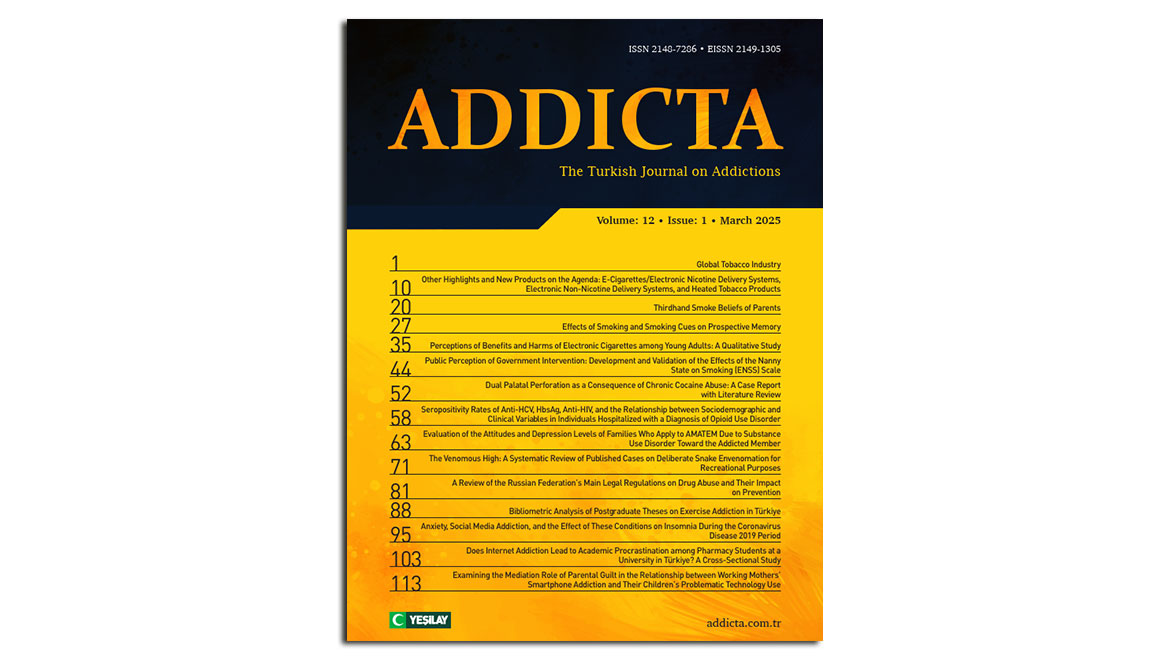

The 5th International Congress on Technology Addiction Organized by the Green Crescent Brought Various Experts Together
The International Congress on Technology Addiction, organized by the Green Crescent for the fifth time, was attended by 36 speakers, including 16 from abroad. During the two-day congress, the many aspects of technology addiction were discussed, from screen use to social media, and from online gaming to gambling, along with the effects of the pandemic. Invited to the congress were four keynote speakers, who addressed the issues of COVID-19 and gaming disorders; healthy gaming habits and addictions; approaches to the prevention of technology addiction; and the effects of in-game spending on addiction. Stating that technology is needed up to a point, Prof. Mücahit Öztürk, Green Crescent President, said: “We are seeing a generation in which children are introduced to screens, phones and tablets from the moment they start walking. We can say, therefore, that especially children aged 2 and upward, right up to young adults aged 30 are at particular risk.”
Green Crescent hosted the 5th International Congress on Technology Addiction with the participation of experts both from Turley and from around the world. A total of 36 speakers, including 16 foreign speakers from 16 countries, participated in the congress, where they addressed various themes, including digital addiction, the effects of COVID-19, the relationship between gaming and gambling addictions, and the excessive use of social media and smartphones. The opening speech of the congress was made by Prof. Mücahit Öztürk, Green Crescent President, whereas the keynote speakers were Prof. John B. Saunders from the National Centre for Youth Substance Use Research, University of Queensland; Prof. Joel Billieux from the Institute of Psychology, University of Lausanne; Prof. Hae Kook Lee from Uijongbu St.Mary's Hospital, Catholic University of Korea: and Assoc. Prof. Daniel King from Flinders University.
In his opening speech, Prof. Mücahit Öztürk stated that Green Crescent had pioneered and closely followed the various studies and researches of technology addiction and so realized the emerging risks at an early stage. Expressing their happiness at organizing the 5th International Congress on Technology Addiction Congress, Prof. Öztürk said:
“When it comes to technology addiction, we are facing a novel situation. When it comes to tobacco, alcohol, substance and gambling addictions, we can give clear advice to stay away from the addictive object or situation, but the situation changes when it comes to technology. We all want to use communication technologies, both for research and for fun, and there is nothing wrong with that. The use of technology is necessary up to a point, and it would therefore be irrational to completely reject it. But when you start saying ‘I cannot do without it’, the risk of addiction emerges. Moreover, maybe not from birth, but from the age of two up to the age of 80, everyone is at risk, because we are seeing a generation in which children are introduced to screens, phones and tablets from the moment they start walking. We can say, therefore, that especially children aged 2 and upward, right up to young adults aged 30 are at particular risk. This age group faces many problems, such as academic and business failure, social relation issues, a sedentary lifestyle and an inability to engage in artistic activities. We lose so much value, and it may be difficult to make up for this later.”
th
Prof. Mücahit Öztürkth
“We are facing a problematic generation in terms of their ability to communicate and express their feelings”
Highlighting that children and young people who choose the virtual world as their main social space lack the ability to realize the inherent risks, Öztürk said: “Parents should keep the situation under control in terms of content and time, meaning that it is possible to minimize the risk. We can say that today, the whole world is at risk. As children opt to establish relationships in the virtual environment, we are facing a generation that has problems in communication, speaking and expressing their emotions. One of the best examples of this is the way social media is used, being somewhere to vent anger. Through their screens, people address others using words that they would not use in daily life. Managing these risks necessitates conscious use of the Internet.”
On the issue of technology addiction, Green Crescent has been raising the awareness of 8 million students and 3 million adults every year as part of its Green Crescent Addiction Prevention Training Program (TBM), and has plans in place to address students from an even earlier age through its Healthy Generation Healthy Future Contest. Addicts and their families can access free-of-charge psychosocial support through the Green Crescent Counseling Centers (YEDAM)
Those who play online games for more than 3–4 hours are at risk of addiction
Prof. John B. Saunders from the National Centre for Youth Substance Use Research, University of Queensland, gave a presentation entitled “Gaming disorder: Meeting the challenges in the pandemic era”. He highlighted that today, the digital revolution and the COVID-19 pandemic are two important factors contributing to gaming disorder:
“COVID-19 has affected life all over the world, and there have been lockdowns as a protective measure. Social isolation has had a marked effect on people, particularly the young and the elderly. People have experienced anxiety disorders, depression and post-traumatic stress disorder, and in this period, the gaming sector continued its activities with such discourse as ‘playing in different places, but together’. Since March 2020, the number of people playing games has increased by 28 million in the United States and 8.6 million in the United Kingdom. Looking at mobile game use, there has been an increase of 28 percent in the United States, 50 percent in the United Kingdom, 34 percent in South Korea and 25 percent in Germany. Moreover, more than half of these users say that they will continue to play the game afterwards, which means that this increase is not periodic. The important point here, however, is understanding when this activity becomes dangerous and risky. Research has shown that playing online games for more than 3–4 hours a day is risky, and various symptoms may occur, including poor academic performance, anxiety, depression, autism spectrum disorder and a deterioration in parental relationships. When one loses control over their gaming habit, the emphasis placed on games increases, and the person continues to play, despite the negative consequences. We refer to this as gaming disorder.”
Mentioning that the aim of treatment is Internet use without games, Prof. Saunders spoke about various techniques that could be applied as preventive measures during the COVID-19 pandemic, such as the creation of an activity plan, regular sleep and healthy diet, regular exercise, learning stress reduction techniques, scheduling the access of children to electronic devices and limiting the time spent on online games.
65.5 percent of students increased their use of digital media during the distance learning period
In his presentation entitled “COVID-19 and excessive digital use: Current situation and prevention strategy”, Prof. Hae Kook Lee from Uijongbu St. Mary's Hospital of the Catholic University of Korea, explained how the COVID-19 pandemic had affected mental health, and said:
“Concerns about contracting COVID-19 are decreasing over time, while depression, anxiety and suicidality are increasing. According to a study carried out in South Korea, the rates of depression and suicidality have increased by 6 and 3.5, respectively, when compared to 2018. This can be attributed to the inability of people to establish close relationships and the lack of social interactions. This led them to pursue online activities, and at this point, the risk of addiction emerges. In another study in South Korea, 44.3 percent of smartphone users and 24.4 percent of online gamers stated that the time they spend on such activities had increased, and it would seem that this increase has affected mainly those in their 20s. Furthermore, the risk among students is even higher, as they spend more time on computers due to distance education, with 65.5 percent of students stating that their use of digital media had increased. Female students head for smartphones and online shopping, whereas male students spend more time with online games and adult content.”
Emphasizing that individuals with mental problems are at greater risk of developing technology addictions, Prof. Lee said: “To prevent technology addiction, a balance should be established between digital life and real life, the interests of individuals and industries should be protected in a balanced way, and steps should be taken in both preventive and therapeutic areas based on strategies specific to this type of addiction."
In-game spending may be a part of gaming disorder
Speaking about in-game spending in his presentation entitled “Predatory monetization in online games”, Assoc. Prof. Daniel King from Flinders University commented on the benefits to the gaming sector brought by the COVID-19 pandemic: “When we look at traditional games, we see an interactive mechanism that supports decision making, that offers real rewards and that requires certain skills. On the other hand, gambling is defined as the gaining of a certain value based on risking something valuable on competition or luck. When we look at the most popular digital games today, we see that they combine the features of gaming and gambling. In-game spending mechanisms are, however, much more complex than gambling. The gaming industry uses different strategies to encourage in-game spending. Furthermore, there is a serious information asymmetry between the user and the game industry. The industry knows its users’ gaming habits, the time they spend and the overall in-game spending trend, and takes advantage of this knowledge accordingly. There is a huge amount of money spent on games. For instance, one user spent $2 million to maintain his leading position in a game, and young people have been known to spend on their family members’ credit cards, placing them in considerable debt. In Australia, one-third of young people aged 8–17 years admitted to having spent money on in-game purchases.”
Mentioning that in-game spending may be a part of gaming disorder, King said: “When users with gaming disorder are treated, it is not their intention to stop gaming, but rather to control it, and 30 percent of them do not continue treatment. We see that the depressive feelings experienced by those with this disorder also increase during treatment, as they have no other sources of emotional stability other than games.
All aspects of technology addiction were discussed during the seven sessions held over two days
In the session chaired by Saiju Hameed, President of Country Green Crescent India, on the first day of the congress, Matthew Browne, Sally Gainsbury, and Atul Ambekar made presentations entitled “SF-D6 health utility weights for gambling problems and the harm of using a propensity score weighting paradigm”; “Website design features: The role of social cues, regulatory cues, gambling activities and consumer protection practices in risky online gambling”; and “COVID-19 and addiction treatment: A perspective from India”, respectively.
In the second session, chaired by Prof. Vedat Işıkhan, who is a member of the Social Policies Council of the Presidency of the Republic of Turkey and a member of the Scientific Committee of the Turkish Green Crescent Society, presentations were made by Zsolt Demetrovics, Yankı Yazgan and Daria Kuss on the subjects of “Gaming and Attention Deficit Hyperactivity Disorder (ADHD): Results of two large-scale studies”; “Autism spectrum disorder and gaming and other ‘digitally pleasurable’ activities”; and “Always on - Social networking as a way of being”, respectively.
In the final session of the first day, chaired by AlHaji Audi Kongila Mohammed, President of the Country Green Crescent Nigeria, Marc Potenza, David Hodgins and Daniel Spritzer discussed “Gaming, pornography viewing, and problematic forms of Internet use during COVID-19”; “How much is too much? Developing lower risk gambling guidelines using international data”; and “Microtransactions in gaming”, respectively.
The second day of the congress started with the session chaired by Ahmad Mohammed Fairuz, President of Country Green Crescent Malaysia, with speakers Natacha Carragher from the World Health Organization (WHO), Sophia Achab and Jiang Long who gave presentations on “Assessing the impact of COVID-19 on problematic gaming and gambling: results from an international key informant survey”, “Mitigating public health challenges of gaming disorder”, and “National clinical guidelines and expert consensus for gaming disorder recently released by National Health Commisssion of China”, respectively.
In the 5th session, chaired by Prof. Peyami Çelikcan, Chairman of the Scientific Committee of the Turkish Green Crescent Society, Cam Adair discussed “Ready Player 2021: Gaming disorder, streaming, and esports”, whereas Prof. Kemal Sayar and Berna Yalaz spoke about “Virtual fatigue”, and Assoc Prof. Orhan Gürsu spoke on the issue of “Religion in the struggle against technology addiction”. The 6th session was chaired by Prof. Murat Balcı, and featured presentations by were Prof. Kültegin Ögel, Prof. Gül Karaçetin and Dr. Mehmet Dinç, who spoke about “Treatment of Internet addiction: Good and bad news”, “Parental attitudes toward children and adolescents who engage in Internet gaming” and “The digital world of children and young people: A guideline for parents and teachers”, respectively.
In the final session of the congress, chaired by Prof. Osman Tolga Arıcak, who is a member of the Scientific Committee of the Turkish Green Crescent Society, Dr. Şahin Bayzan, made a presentation on the “Excessive use of social media: The current situation in Turkey and the World”; Hakan Çetin and Melike Şimşek gave a presentation on the “Prevention and intervention studies of the Turkish Green Crescent on technology addiction”, and Dilan Dolan and Nisa Nur Peker spoke about the “Youth perspective of technology addiction”.
During the congress, five high school students studying at various high schools in Istanbul, Izmir and Bolu, gave presentations on some specific aspects of behavioral addiction related to the Internet and technology. Ahmet Keçeci gave a presentation on “Young people’s perspective of gaming disorders”, Asude Güvener and Zehra Miray Özge Türkmen spoke about “Young people’s perspective of the use of social media”, Ertuğrul Tunç commented on “Struggling with technology addiction through technology” and Özge Türkmen opined on the “Use of technology by preschool children”
th


